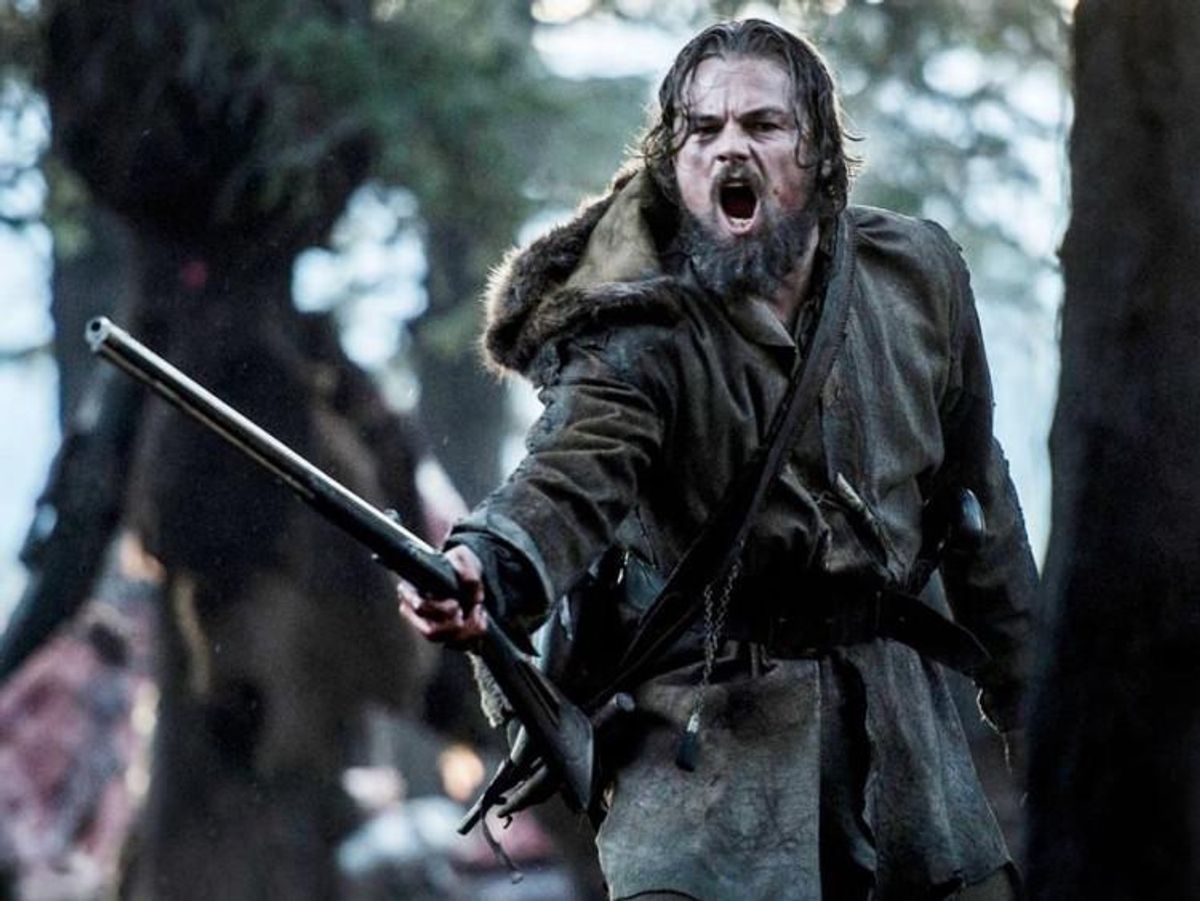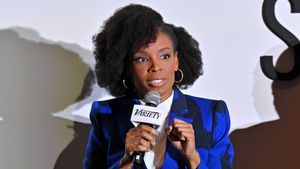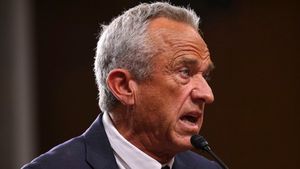Hollywood's basically been run by the same people for over 100 years. The same people that have been running this country for most of the past 250-plus years, but the United States got a black president before any major network did.
Related | A Brief History of Diversity (or Lack Thereof) at the Oscars
"It's easier to be the president of the United States as a black person than to be the head of a studio," Spike Lee remarked last year upon accepting an honorary Oscar, though he'll be among several filmmakers and actors skipping the annual cinematic trophyfest this year.
The glaring lack of diversity among this year's Academy Award nominations has prompted discussions about representation in Hollywood, and when you start talking about representation, you inevitably have to talk about who's in charge of the representation. Because straight white men have held the majority of power in Hollywood for as long as there has been a Hollywood, anyone who is not a straight white man--or related to one of those straight white men--will find the struggle for recognition that much more real.
Related | Ian McKellen: Gay People Are Also 'Disregarded' by Hollywood
The New York Times talked with 27 actors, writers, producers and directors about exactly how real the struggle is to make it in Hollywood when you're not a straight white male.
Julia Roberts, actress, national treasure
I remember my first meeting with the producers on Erin Brockovich, before Steven Soderbergh came onto it, and saying, "This scene where she's shimmying down a well in a micromini? I can't do that." [They said], "But that's really what happened." And I go, "I know, but once you make it a movie, you have to re-examine, what's the function of this scene?" I didn't feel I was being fully understood. People assumed it was about my sense of modesty. And you just think, "No, you're not hearing what I'm saying." Steven and I were very in sync on how we wanted to portray her -- the sexiness as well as the soul -- and I didn't have to wear a micromini shimmying down a well.
Jussie Smollett, actor, Empire
I had posted something that was very political, and the amount of negative comments was really heart-wrenching. Then, [at a restaurant], this older black dude walked up and said, "I didn't want to bother you, I didn't want a selfie, I just wanted to let you know that the story line of Jamal" [his gay character on Empire] "really made it easier for me to talk to my son about his sexuality." I needed him at that moment. But apparently he needed the story line at the moment.
Karyn Kusama, director, Jennfier's Body
The marketing department wanted Megan [Fox, star of Jennifer's Body] to do live chats with amateur porn sites, and I was like, "I'm begging you not to go to her with this idea, she will become so dispirited." It was fascinating to have the writer be female, the director be female, the stars be female, and my head executive be female, and then we get to the top of the mountain, all those [male] marketing people. It was crushing.
Wendell Pierce, actor, The Wire
In 1985, I'm sitting in the casting office of a major studio. The head of casting said, "I couldn't put you in a Shakespeare movie, because they didn't have black people then." He literally said that. I told that casting director: "You ever heard of Othello? Shakespeare couldn't just make up black people. He saw them." I started carrying around a postcard of Rubens's "Studies of the Head of a Negro." The casting director actually was very kind to me. He referred me to my first agent.
Queen Latifah, actress, producer, Bessie
The discussion came up when we were doing [the TV series] Living Single that [the cast needs] to lose weight. [My manager] Shakim would get the call, and it would be laughter by the time it got to me, because there's no way. I felt I represented a woman out there who should get to see somebody who weighs about as much as she does.
Kimberly Peirce, director, Carrie
[Coming to Hollywood as an out person], it scared me. I thought if they don't like this, I'm going to push their buttons and not mean to. I thought the gayness was what was going to freak people out, and in a lot of ways, it's the femaleness that causes more problems in a straight, male world. That, I didn't expect.
Hari Nef, actress, Transparent
Being given the female roles had its own challenges. Finally it was here, but am I feminine enough to play this role? I would like to get to a place where I get offered roles that I'm a fit for as an actor that maybe don't have as much to do with my body and more to do with my personality.
Mindy Kaling, actress, creator, The Mindy Project
My role is not just artist. It's also activist because of the way I look. On so many shows and movies, race was a gesture, and in mine it's the premise. I can't ignore that what a lot of people see is an Indian woman who doesn't look like a Bollywood star. It piques their interest, and they're not bad for wanting me to tell stories about it, and I'm not wrong for not wanting to. I want to fill my desire to write vibrant, flawed characters, but then also be a role model to young people. It's stuff that I think about all the time. Some people don't have to think about this at all.
Read the rest of the interviews here.

























































































